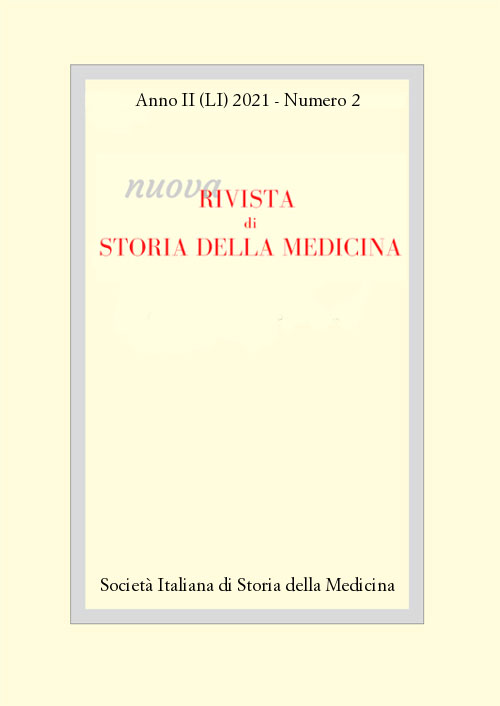Titoli di studio e abilitazione all’esercizio della professione medico-chirurgica a Napoli (secoli XIII-XIX)
DOI:
https://doi.org/10.13135/2724-4954/6236Abstract
The granting of the license to practice the medical-surgical profession has been characterized, over the centuries, by significant changes related to government policy and the changing needs of societies in progress. Naples is taken into consideration, as a jurisdictional district, since – in this re-gard – the vast series of established legislative measures constitutes a welldocumented background on the evolution of the specific legislation in relation to successive periods in the course of history. This documentary sources appear interesting because it summarizes, in a se-ries of rules, the evolutionary interaction of practitioners in medicine and surgery with society and with institutions: Naples, therefore, first an autonomous kingdom and an Italian city later, as a regional and national testimony of the evolution of the fig-ure of the doctor-surgeon from a catholic philosopher to a professional and state official. In the examination of the legislative process relating to the qualification to practice the medical profession, the following aspects are then analyzed: the structures authorized to award the qualification; the value of collegiate, university and state qualifications; the collegiate and university regulations and the health law; the classes degree (medicine and surgery), relations with orders and corporations.



